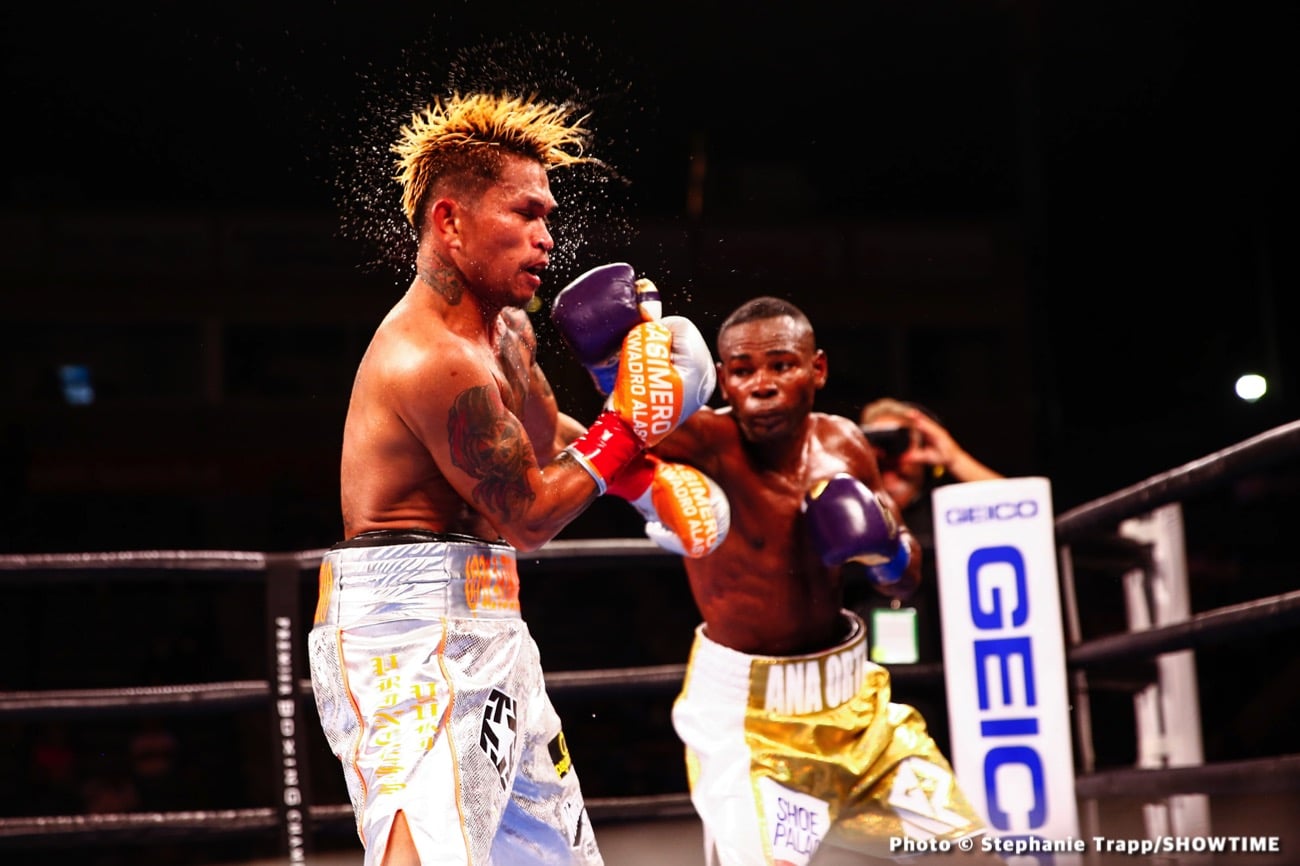One of the purest, most naturally gifted boxers to have come out of the so utterly talent-rich, yet small island of Cuba, Guillermo Rigondeaux today celebrates his 45th birthday. Last seen in the ring in November of last year, this when “El Chacal” picked up a decent win over a 20-2 Dannis Aguero Arias, this former two-weight champion has long since been a polarising figure of the sport.
On the one hand, absolutely nobody can ever deny the fact that the southpaw with the poker-face was blessed with very special boxing ability, indeed a ring IQ that ranks up there with the very best. And in some of his fights, the man ace trainer Freddie Roach once referred to as “probably the greatest talent I’ve ever seen “ (and let that sink in), showcased his brilliance in, well, in brilliant, even awe-inspiring fashion.

When Talent Meets a Divided Audience
But there are two problems when it comes to evaluating Rigondeaux and just where he deserves to be ranked among the pantheon of ring legends: He was, the critics said, “boring,” this to the extent that his skills were largely overlooked, even criminally ignored by some fans. Oh, and secondly, Rigondeaux not only lost the biggest fight of his pro career, he quit during it. Rewind to December of 2017, and so many of us were in a lathered state of excitement and anticipation going into “Rigo’s” fight with fellow pound-for-pound star Vasiliy Lomachenko.
What skill we would witness, what boxing brilliance. What a modern day classic we would be treated to, one that would be everything The Sweet Science is all about. It didn’t happen. Instead, in quite baffling, he was never hurt fashion, Rigondeaux pulled himself out at the conclusion of the sixth-round. Had Rigondeaux been so utterly frustrated that it was, in his mind, an affront to his incredible skills? To this day, we’ve never really had a full answer as to why the proud Cuban did what he did.
Dominance, Setbacks, and the Question of Greatness
Prior to that fight, Rigondeaux had ruled as the WBA/WBO/Ring Magazine super-bantamweight champion, and he had picked up fine wins over the likes of Ricardo Cordoba, Nonito Donaire and Joseph Agbeko. “Rigo” had also shown firepower in lodging up stoppage wins over Willie Casey, Rico Ramos, Teon Kennedy and Jazza Dickens. In total, Rigondeaux had notched up eight title retentions. Then came the Lomachenko disappointment.

Rigondeaux recovered, at least partially, and in dropping down to 118-pounds he became a two-weight champion courtesy of a win over Liborio Solis that saw him claim the WBA bantamweight belt. And, as should be pointed out to those who still moan about how “boring” Rigondeaux was, in his fight prior to edging Solis, he went to war with a much younger Julio Ceja, the fight providing action as well as a smack in the mouth for those who felt they were armed with the “boring” tag when it came to Rigondeaux.
Close losses to John Riel Casimero and Vincent Astrolabio did Rigondeaux no favours, and he has since boxed just three times; this after suffering eye damage (thankfully not permanent) due to a freak accident where his cooker blew up in his face. As of now, Rigondeaux is 23-3(16) 1 no-contest, and he has been stopped only by way of capitulation, this of course in the Lomachenko fight.
So, let’s get to it: how great was Rigondeaux and what kind of a place should he be handed as far as going into boxing history? When we look at Rigondeaux’s amateur career, it is clear as day we are looking at a major talent, a massive force. During an amateur career that saw him rack up simply mind-boggling numbers that read 463-12 (!), Rigondeaux captured, among other things: Not one but two Olympic gold medals, not one but two World Amateur Championship golds, and a World Cup Championship.
Now, that’s impressive. As a pro, Guillermo picked up those important wins over Donaire, Cordoba, Agbeko, Ceja and Solis. And it was as a pro boxer that Rigondeaux displayed almost impeccable defensive skills, to the point where he is almost unmarked. Rigondeaux could also punch with spite, he had superb ring generalship, beautiful balance, excellent timing, and good speed of both hand and foot.
The question is, how much does that bad loss, that almost unforgivable loss – unforgivable at least in the manner in which Rigondeaux failed to go out on his shield – hurt Rigondeaux’s legacy?
Are we talking about a future Hall of Famer here? For what it’s worth, I think when it comes to Guillermo Rigondeaux, we are indeed.

Click here to subscribe to our FREE newsletter
Related News:
- Guillermo Rigondeaux Scores Quick KO Win Over Dannis Aguero
- Trainer Virgil Hunter: “Rigondeaux Fought Lomachenko, He Dared To Take The Opportunity, With No Catchweight”
- Guillermo Rigondeaux A Bare-Knuckle Slugger? Reports Say “El Chacal” Will Have His BKFC Debut In May
- Smith Wins WBC Strap but Owes Mandatory Defense to Puello
- Dalton Smith Ends Subriel Matias’ Reign with Precision and Power
- Richardson Hitchins Has a Narrow Window Before the IBF Steps Back In
Last Updated on 09/30/2025


